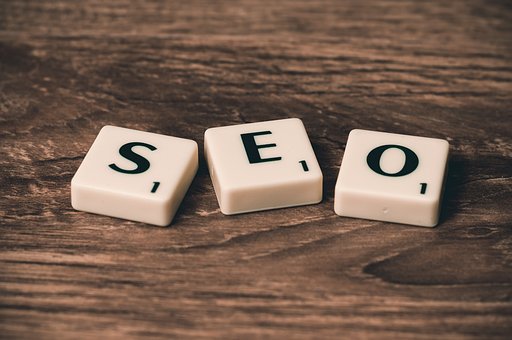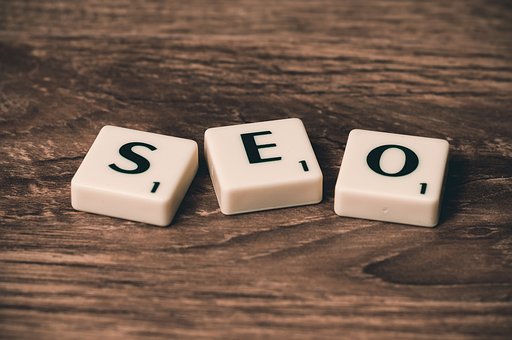What Is SEO?
Making content on the web more noticeable to web users while they are looking for information through search engine outlets such as Google is what SEO (search engine optimization) typically involves. When search engine optimization (SEO) is deliberately and cleverly used in your web material, it can give your website or media platform higher possibilities of appearing in the online searches of your desired audience. Search Engine Optimization is the reason why keeping a website with optimized content, having a blog, and publishing material on other websites are great ways to discover potential customers and transform them into paying customers.
Search Engine Optimization (SEO) makes use of keywords as tools, which are the exact words and expressions that online searchers type in when using search engines. If you put “PPC vs. SEO for my lawn care business” in the Google search box, then this post likely showed up in the results due to its discussion about SEO and PPC in relation to lawn care organizations. The words that matter are naturally found in this text because it was purposely written to give information to people just like you. If you own a pool care business, you might make a blog post about what measures to take if a client’s pool water appears murky after a rainstorm. This would be directed at those who are dealing with an issue that you are knowledgeable about solving.
There is both a skill and a creative element to determining the most effective SEO keywords to incorporate into purposely designed content. One must initially comprehend the most up-to-date Google algorithms or collaborate with a SEO professional that recognizes how to enhance the user experience (UX) for their intended viewers. You may require a firm background in SEO research and facility in writing to construct material that naturally works in the correct watchwords to correspond with your customers’ searches.
SEO can be improved by staying on top of website changes, making sure your Google Business Profile is current, and offering readers new material through a blog or e-newsletter.
SEO is an excellent option to boost your search engine rankings and to gain an edge over competitors, as it does not require you to spend any money.
Are there other search engines besides Google?
The majority of SEO techniques are focused on Google rather than Bing or Yahoo!, as it has a 92.47% stake in the search engine market. In order to show up earlier in the list of search engine results, you need to gain knowledge of Google’s 200 evaluation variables, SEO optimization, link building, and the process of making content.
Pros of SEO
Here are some advantages of SEO:
1. SEO is cheaper in the long run.
Although it might take investing resources such as time and money for engaging with freelancers or agencies, as well as investing in SEO tools, utilizing SEO is still less costly compared to utilizing PPC in the long run.
If you design content that ranks highly and directs people to visit your website, you won’t have to continuously dish out money to get your desired audience to notice it. When people select your link, there is no cost associated like you would pay with pay-per-click advertising.
Organic traffic is also very scalable and cost-effective.
2. You can target different funnel stages with SEO.
Not everyone in your audience is at the same level of the purchasing process.
People at the beginning of the process are becoming familiar with your company. Others are primed to purchase, already on the brink of making a purchase.
By using SEO, you can make various kinds of content (blog posts, instructions, case studies) that precisely match each part of your audience’s needs in their journey through the sales process. This will increase the possibility of your website’s visitors moving forward in the sales funnel when they view your content.
3. Search traffic is more stable.
Once you have obtained a good position on Google, you can look forward to free visits to your website provided that you continue to improve its SEO.
One more positive aspect to remember is that there is no need to constantly switch SEO on and off. Once your allotted marketing budget is gone, your website will no longer be visible on search engine results pages with pay per click advertising. A good way to recall this contrast is similar to a real estate metaphor: SEO is like owning your web traffic whereas PPC is like leasing it.
4. Organic listings build brand authority.
Showing up reliably in searches related to what you offer will lend validation to your brand in the eyes of your intended audience.
This signifies to Google that you have a thorough understanding of that topic or subject. This can result in more connections from other trustworthy sources which search engines pay particular attention to when ranking sites.
Cons of SEO
Here are some reasons why you might not love SEO:
1. Search engine algorithms change.
Google and other search engines have continually updated their algorithms throughout the years. You have to pay close attention to your promotional campaign and natural outcomes.
2. You’ll need to optimize your website regularly.
Once your website has achieved a high ranking position for the desired keywords for a period of one month, your work does not end there. You will need to tweak your content and web pages periodically so that your site stays high in the search engine rankings.
Updating old posts and eliminating outdated/invalid links might be part of the optimization process.
3. SEO takes time to show results.
If your website or domain is newly created, it is unlikely that SEO will deliver quick results. The cause of this is that there are multiple elements which influence how Google assigns a position to websites — some that cannot be resolved in the beginning stages when a website is newly created.
2. It requires high-level skills and expertise.
If you don’t have a specialist helping you, figure out your target audience’s objectives and offer content of good quality to optimize your website for search engines.
It can be quite an undertaking to manage a business while studying SEO, content creation, and link building, but with the right strategy it is definitely possible to increase your income.
What Is PPC?
A form of search engine marketing (SEM), pay-per-click (PPC) advertising requires businesses to pay each time someone clicks on their advertisement. Pay-Per-Click advertisements can appear on different search engines such as Google, Safari, or even on social media platforms like Facebook. As you can only be charged when a person interested in your advertisement clicks on it, you are targeting individuals more likely to require and want your services.
If someone looks on Google for lawn care that won’t break the bank, probably the first ad they’ll be drawn to is your ad that says “The Most Affordable Lawn Care.” The ad will lead potential customers to a webpage with more information about your services. This page will offer immediate benefits for conversion and encourage them to become patrons of your services. The objective of an PPC ad is to persuade the intended recipient to take a certain course of action, such as enrolling for your bulletin, phoning or messaging your workplace for further data, or reserving an appointment for an in-home estimate.
PPC Bidding
The expense of PPC ads is contingent on the number of searches that the keywords or phrases you are aiming for receive. The amount you will be charged for each click on your advertisement is decided by the search engine’s system of keyword bidding.
When joining a Google ad, you will pick out a certain keyword or phrase as the foundation. Every time someone clicks on an ad with the selected keywords, you will be asked what amount you are willing to pay. Your rivals are attempting to purchase the same keyword or phrase. For a small business needing to get the best use out of their marketing funds, it is important to be aware of how much to put in a bid for the most visited advertisement employing a designated phrase or key term. Consequently, this will expand the most viewers. The aim is to make your advertisement show up in the highest possible place on a search engine result page with the lowest cost per click. Using data analysis in combination with a methodical process of experimentation will bring about the desired outcomes.
What Is The Difference Between SEO And PPC?
Folks often wonder if SEO is unlike PPC. As you come up with your search engine advertising plan, it’s essential to be aware of the discrepancies between them and their benefits as well as drawbacks.
SEO: Pros And Cons
Some of the best reasons to explore SEO for your business include:
- SEO increases credibility. Homeowners or commercial property managers looking for your company’s services trust organic search results more than ads, even though organic results appear lower on the search engine results page. When they see a specific lawn care service or pest control company pop up with useful information, they tend to trust the information and the company it came from.
- SEO increases visibility. The more your business appears in search results, the more visibility it garners among the people you want to reach. Visibility is an important aspect of branding, and well-executed SEO provides great visibility while lending authority to your name and the content you’re providing. A local pest control company that might have trouble competing with national brands on television and radio can easily win the internet visibility game with the right targeted SEO.
- Clicks are free. While optimizing your website and online content for organic internet searches can be time-consuming and even a bit costly as you learn your way around the SEO world, you never have to pay a cent for a click. When a prospect sees your name associated with the content and then clicks on the SERP information to open the page, you pay absolutely nothing.
- Optimized content has a long shelf life . Once you load up a page full of useful content and strategically paid keywords onto your site, it’s accessible to all until you decide to delete it. So if the articles you provide on your lawn care website cover evergreen topics like “when to fertilize your lawn” or “how to rid your garden of weeds in the spring,” people searching for expertise on those topics can find you. Your content can easily be accessed if you keep your content fresh and your keywords current. The highest-ranking pages are more than two years old, likely because the more visitors you get, the more traffic you will attract.
Cons of PPC
1. PPC ads are expensive.
Without money, you cannot run a PPC campaign.
You have to give money for each link that is pressed by your viewers, and so, when your funds run out, the website visits will also cease.
The cost of a PPC ad can reach as high as $40 when one is participating in a crowded field like the insurance or legal sphere.
2. Lower profit margins.
A PPC campaign can lead to quick gains, but usually at the cost of low profit margins. Due to PPC being a “pay to play” system, your expenses for customer acquisition (CAC) would only rise if you don’t raise the values of your products and services drastically.
3. PPC ads become stale after a while.
You have restricted authority over your advertisement that you paid for because of the regulations set by ad programs such as Google. Your text could have words similar to what your competition is using, making it likely for readers to skim it quickly.
SEO vs. PPC: Which is better?
It’s like trying to decide whether it’s more advantageous to use a fork or a spoon when eating; it just depends on the situation. So the same goes for SEO and PPC; it all depends.
Serving pasta? Sure, I’d love a fork. Soup? I’d rather have a spoon.
In the same manner, there are instances where SEO is preferable to PPC and conversely, situations where PPC is better than SEO.
Let’s now look at some of these situations.
Use SEO if…
- Your marketing budget is low.
- You want to build your brand authority.
- You’re looking to maximize your long-term return-on-investment (ROI).
- You want to create content that reaches your audience at different stages of the sales funnel.
Use PPC if…
You’d get better results with PPC in situations where:
- You want quick results.
- Your product is novel or first-of-its-kind.
- You’re promoting a time-sensitive offer, like a holiday sale.
- You want to direct your audience to a sales or landing page.






